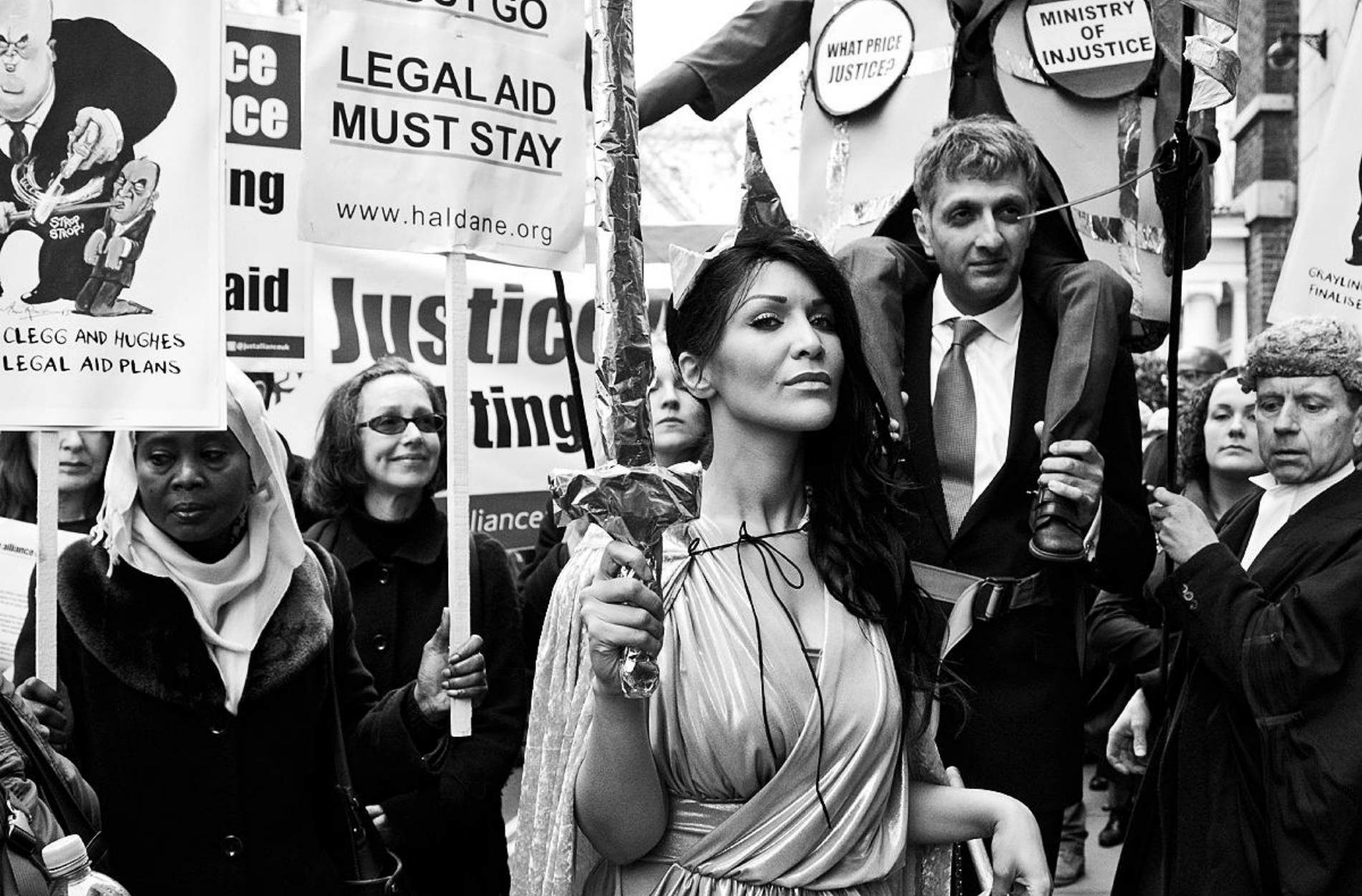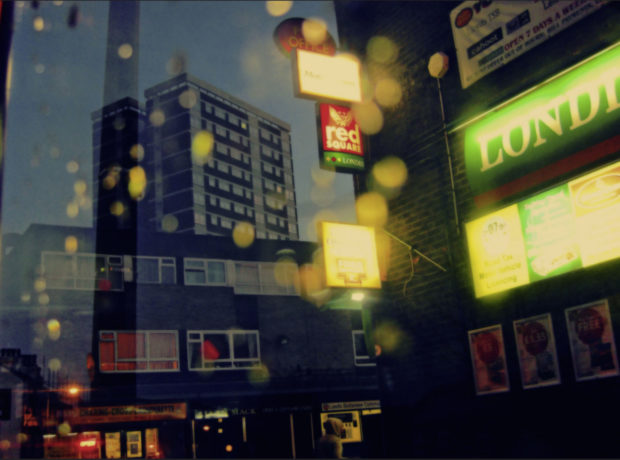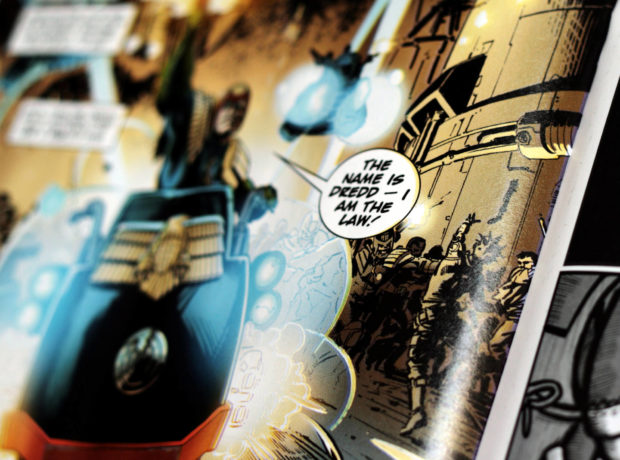I am sitting in the café at Sheffield Magistrates Court with fellow solicitors, waiting for my case to be called. There are eight of us squeezed around a table built for four. The topic of conversation turns to the Government’s cuts to criminal legal aid.
It’s a conversation I have heard and had countless times, in every court I have stepped foot in since qualifying as a solicitor in April 2013. The only thing that has changed is the steadily growing concern on my colleagues’ faces as it has become increasingly clear that this Government is not for turning.
We’re talking about the impact of the cuts on our profession. One colleague feels most sorry for people like me: lawyers who have recently qualified into an area of law that is fast becoming financially unviable. Another disagrees. He says that I can at least change career with relative ease. He’s been in criminal law for decades. He knows nothing else and would have difficulty convincing himself, let alone a potential employer, that he could do something different. And he’s not alone. In the past year, I’ve heard experienced criminal defence lawyers talk semi-seriously about taking jobs in supermarkets. Virtually all those that I’ve spoken to are, at the very least, seriously considering alternative careers. Many are actively seeking ways out of the profession and those that are sufficiently close to retirement have already started to leave.
This is a travesty. Criminal defence work is challenging and the lawyers who do it are a particular breed. It’s not generally a career people fall into. Most of us are passionate about what we do and have made conscious decisions to practice in this area, despite it already being one of the least profitable in legal practice. This is not surprising when one considers the suspicion that criminal defence lawyers often arouse in those unfamiliar with what the job actually entails. People often react with slight surprise or even discomfort when I tell them what I do. And most lawyers and aspiring lawyers are no different. How, they are thinking, can you represent criminals? Well, we do it because we believe in the principle of innocent until proven guilty. We do it because we know that the world is not as simple as the tabloid’s might make out; and we know that people are rarely all bad and people that do bad things often deserve pity as much as they deserve judgement. We do it because we know that it is so often our society’s most vulnerable who end up in the criminal justice system. We do it because, whatever others may think of us, we believe it is right.
Members of the public who have been following the debates on criminal legal aid cuts would be forgiven for thinking it is only us lawyers who stand to lose
Members of the public who have been following the debates on criminal legal aid cuts would be forgiven for thinking it is only us lawyers who stand to lose. There is no denying that we do. Once the Government’s proposals have been carried through in full, it will be a very different profession. Many of those who have been practising in this area for years will be gone, taking their knowledge, skills and experience with them. But it’s neither people like me nor my older colleagues who stand to lose most. It’s the vulnerable people, particularly children in care, who are already overrepresented within and ill-served by the criminal justice system.
The Trouble with Children
At my firm, Howells Solicitors in South Yorkshire, we’re lucky to have a solicitor who specialises in youth work. Her name is Chris Peace. Chris qualified as a teacher and taught in a secondary school for four years before deciding to become a criminal lawyer. She realised that it was invariably her most vulnerable students who ended up in trouble with the police and she wanted to help protect their interests when that happened.
This is what Chris now does. But it’s a hugely challenging job. When I ask her about it she tells me, ‘A lot of the clients are very demanding. [To begin with] they are teenagers and teenagers don’t work in a linear way. [The kinds of children who end up in the criminal justice system] have got multiple issues and it’s very important to make sure that the court is aware, that the CPS is aware, of what they are and how they are relevant. It takes a lot of multi-agency working, and is a different approach [to dealing with adults]. With a young person, before you’ve even set foot in court you’ve probably got half a dozen people that you should have spoken to. You can tell the difference between an advocate in youth court who is taking that approach [and one who isn’t] from the results that happen to the young people. So often when I pick up a case that has been dealt with by someone else, the [client has] ended up with things on their record which should never have progressed as far as they did. They have ended up with a reprimand or warning, a caution or a conviction even; and it’s just because there isn’t that approach to dealing with it as a specialist area. These cases and people simply take a lot more time to deal with [than adults].’
There are already a lot of firms that have a very negative approach to youth court work. Chris believes this is due to the extra effort required to deal with young people. The better firms are those with a dedicated youth court specialist to take the lead on appropriate cases and assist their colleagues on others.
’People like me’ says Chris, ‘will simply not be afforded and I will have to make a financial choice.’
Chris tells me that legal aid cuts will exacerbate the position. ‘Solicitors are just going to be more reluctant to deal with a youth who is in for a robbery, who is in care, when they could go upstairs and deal with [an adult] who is in for a domestic violence case where it’s a quick not guilty plea or a shoplift where it’s a quick guilty plea.’ The Government’s expressed aim of reducing the number of firms operating in the market, and the substantial reduction in already meagre fixed fees, will also result in a small number of financially pressed, big firms who will be unable to pay decent salaries. ‘People like me’ says Chris, ’will simply not be afforded and I will have to make a financial choice.’
‘There will’, she fears, ‘be a lot of people straight out of [the Legal Practice Course] who have just got very limited skills in terms of dealing with people generally, just lacking the ability to be able to relate to young people. You don’t just become a great teacher overnight. You don’t get there just because you have lots of experience either. There’s a certain skill and interest that you need from the very start. I just think that the people coming into the profession will not have that interest… [and those that do] will not have the opportunity to pursue it.’
But children aren’t the only vulnerable group who will suffer if the cuts bite as deep as intended.
The case of mental health
Soon after I started practising criminal law as a trainee solicitor in October 2011, I worked with Chris on a case that told me a great deal about how those suffering from mental health problems can also be ill-served by the criminal justice system. And why specialist advice is essential.
Our client was a young woman who I’ll call Tracey.
As a teenager, Tracey was diagnosed with paranoid schizophrenia and severe anxiety. She was now in her early twenties, with little or no family support. With the help of her psychiatrist and community psychiatric nurse, she had been making considerable progress. Over the previous nine months her condition had been as stable as at any time since the onset of her conditions. She had not been admitted to hospital, she was taking her medication and she was living independently and being effectively treated in the community.
For reasons which were unclear, her condition suddenly deteriorated. One night she walked to a local park and cut her own wrists. She then called 999, told the operator what she had done and asked them to send an ambulance. The operator alerted both the ambulance service and the police. Had the ambulance arrived first, Tracey would probably have been taken straight to hospital, treated for her wounds and her psychiatrist’s opinion sought as to how best to treat her mental condition. Unfortunately for Tracey, the police arrived first.
The two officers who arrived at the scene described her as covered in her own blood and babbling incoherently. She was clearly not happy that they were there: she had asked for an ambulance, not the police and she wanted them to leave. But she was erratic: one moment cooperative and friendly, the next moment warning the officer who was trying to engage her in conversation to stay away and calling her a ‘devil woman’, among other odd insults. The officer decided to exercise her powers to detain Tracey under section 136 of the Mental Health Act 1983. This gives police officers the power to detain a person who is in a public place, who appears to be suffering from a mental disorder and who is in need of care or control. In the statement she produced after the incident, the officer said that Tracey didn’t appear to be in control of her own actions. It was necessary, she said, to detain her for her own safety. The second officer at the scene concurred.
As the officer tried to detain her, Tracey lashed out hitting her once in the face. There was little or no injury. Tracey was arrested for assaulting a police officer. She was detained and taken to hospital. Once her wounds were treated, she was taken to a police station where she was interviewed in the absence of an appropriate adult, in flagrant breach of the codes of practice. She declined legal advice. Inevitably, in interview, she fully admitted striking the officer and, went further, suggesting that the she deserved it. She was charged and bailed to court where Chris Peace picked up the case.
In deciding whether to prosecute someone, the CPS has to consider two things: is there sufficient evidence to provide a realistic prospect of conviction; and in all the circumstances, is it in the interests of justice to prosecute? Chris knew that, in Tracey’s case, there was a good argument that neither test was satisfied. Given her mental state, could she really have intended to assault the officer, in any true sense of the word? In legal speak, was the mens rea or mental element of the offence present? Even if it was, would it really be in the interests of justice to prosecute a vulnerable young woman for an act committed while she was so mentally unstable that the officers felt it necessary to detain her for her own safety?
Chris raised this with the prosecutor at the first hearing. As is so often the case, the prosecutor at court had no authority to take a sensible view on the matter and withdraw the charge. The case was adjourned to allow us to obtain medical evidence and make written representations to the CPS. In the meantime, Tracey would just have to deal with the added stress of an impending trial and possible criminal conviction.
The medical evidence from Tracey’s psychiatrist and psychiatric nurse detailed her medical history and the significant progress she had made in recent months. Both practitioners warned that the current proceedings were likely to have a detrimental impact on her mental health. Chris tasked me with making written representations to the CPS to withdraw the charge.
It was an easy argument to make. The decisions which led to Tracey being charged were, quite simply, ridiculous. What on earth were the people involved thinking? What was the officer thinking when arresting and pursuing a criminal complaint against a young woman who, on the officer’s own account, was so unwell she had to be detained for her own safety? What were the investigating officer and custody sergeant thinking when they failed to secure the attendance of an appropriate adult as required by the codes of practice? What was the custody sergeant thinking when he decided to charge Tracey with a criminal offence? The sad truth is, he probably wasn’t thinking. None of them were. She had punched a police officer. What more was there to think about?
Several months after Tracey stood in the middle of a dark city park, babbling and bleeding from self-inflicted wounds, and some six weeks after she first appeared in court, the CPS finally agreed to discontinue the proceedings. She was able to get on with her difficult life, finally free of the unneeded and unnecessary stress of criminal proceedings.
I still remember the anger I felt when reading the case papers for the first time. It’s a feeling I have felt many times since. Despite the frequency with which I encounter it, the lack of empathy and compassion that vulnerable people so often receive from those in positions of power within the criminal justice system, never ceases to shock me. Challenging that common attitude is perhaps the most important and most difficult role a criminal defence lawyer performs. Yet, the simple fact is, when those who have traditionally been attracted to criminal defence work for all the right reasons, have been replaced by inexperienced graduates who will be willing to work for the kinds of low salaries that the firms of the near future will be able to offer, it will increasingly go unchallenged.
I, like my colleagues in Sheffield, have resigned myself to the fact that the likely impact of the recent and impending cuts to criminal legal aid will be nothing less than the decimation of my profession. The loss of specialist lawyers like Chris Peace will be a particular tragedy. But the big firms that will be delivering criminal defence contracts once all of the cuts have been implemented will have difficulty obtaining and retaining any quality lawyers for the salaries they will be able to offer.
I have to admit to feeling a little sorry for myself. I have spent more than eight years and tens of thousands of pounds pursuing a career which I love, but which is on the verge of becoming financially unviable. But it is people like Tracey and the troubled children that Chris Peace represents who will be the true victims of the cuts.
Photo by Chris Beckett



